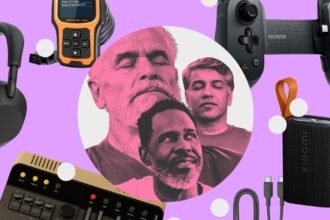Aravind Srinivas is currently in a confrontation with Google, seeking to have his Perplexity AI assistant preloaded on Android devices. Meanwhile, the CEO is shifting his startup’s focus toward what he believes will be the next key area in the AI competition: web browsers.
Srinivas revealed that Perplexity aims to launch its own browser, named Comet, within the next month. "We believe developing a browser may be the most effective way to create agents," he explained. "A browser operates as a containerized operating system, allowing access to third-party services through concealed tabs, along with the capability to scrape content on the client side and perform reasoning and actions on a user’s behalf."
Other AI companies, including OpenAI with its Operator and Google with Mariner, are also venturing in this direction, utilizing browsers to execute commands and manage websites. While OpenAI is rumored to be working on its own browser, Google may face pressure from the U.S. government to divest Chrome due to a monopoly ruling in the search market.
Srinivas’s team has indicated that Perplexity is interested in utilizing Chrome if it becomes independent of Google, and OpenAI may be pursuing similar interests. Meanwhile, antitrust scrutiny on Google has opened doors for Perplexity to forge distribution partnerships with Android manufacturers. Recent announcements include Motorola pre-installing Perplexity on its new Razr smartphones, potentially granting access to millions of new users. Even though the integration may not be as extensive as desired, Srinivas views it as a significant milestone for a startup like Perplexity.
Srinivas commented, "Without the DOJ trial facing Google, this partnership might not have materialized. They could have intimidated many OEMs. I’ve had discussions with telecommunications companies that wouldn’t engage with us for fear of potential revenue share reductions if Google found out."
Since my last conversation with Srinivas a year ago, when Perplexity had only about 1 million users and raised less than $100 million, the startup has surged to almost 30 million monthly active users and raised hundreds of millions. Currently, Perplexity handles around 600 million queries a month, representing about 14% of Google’s query volume.
The subsequent discussion with Srinivas occurred just before the Motorola announcement and included talks about future partnerships, his strategy regarding browser ownership, the development of an iOS assistant that interacts with other apps, and discussions surrounding TikTok.
This conversation has been edited for brevity and clarity:
Can you outline how the Motorola partnership developed and the challenges you faced with Google?
Things picked up significantly after we showcased our Perplexity Android assistant demo that launched in January. It performed reliably and exceeded expectations. Motorola was enthusiastic about preloading the app and notifying users to set Perplexity as the default assistant. However, Google intervened, stating that without Gemini as the default system, Motorola couldn’t proceed with launching the phone using the Play Store and the official Android version.
Had it not been for the DOJ trial, this partnership wouldn’t have been possible. Many OEMs would’ve been pressured by Google, and I’ve engaged with telecommunications companies that refused to meet with us due to fears of repercussions from Mountain View regarding their revenue shares.
Changing the default assistant takes seven or eight clicks, highlighting Google’s strong influence over the Android ecosystem.
Samsung has invested in your company. Would this lead to a similar partnership like the one with Motorola?
I hope so. We’re discussing potential collaborations. It’s still uncertain what form that partnership might take.
You’re clearly focusing on distribution and partnerships to grow Perplexity.
We’re open to working with anyone, with existing collaborations with telcos and a focus on OEMs. We’ll soon be launching a browser compatible with Mac and Windows, and we aim to establish partnerships there as well.
Google controls OEM relationships in the Android realm, and Microsoft’s contracts with laptop OEMs are even more restrictive. We must navigate these obstacles creatively. While it would be hard for anyone to argue that Copilot is superior to Perplexity, it is the only AI integrated natively into Windows.
You’ve just launched your assistant on iOS, and users are impressed with its capabilities. Did Apple grant you any special permissions to control other apps?
No, we didn’t receive special permissions. Our system doesn’t enable actions like setting alarms, switching to low power mode, adjusting brightness or volume, or making calls and sending iMessages.
We opted to use the Apple EventKit SDK, which provides access to Reminders, Podcasts, Apple Music, Apple Maps, and a few other Apple apps. We leverage that SDK and utilize our search capabilities to create deep links to apps like YouTube and Uber.
Siri is functional for basic tasks like setting alarms and making calls, however, it may struggle with finding specific songs, podcasts, or managing ride-hailing. We excel at these scenarios.
Why pursue building a browser, and when will it be available?
Creating a browser might be the optimal way to construct agents. On both iOS and Android, we lack OS









